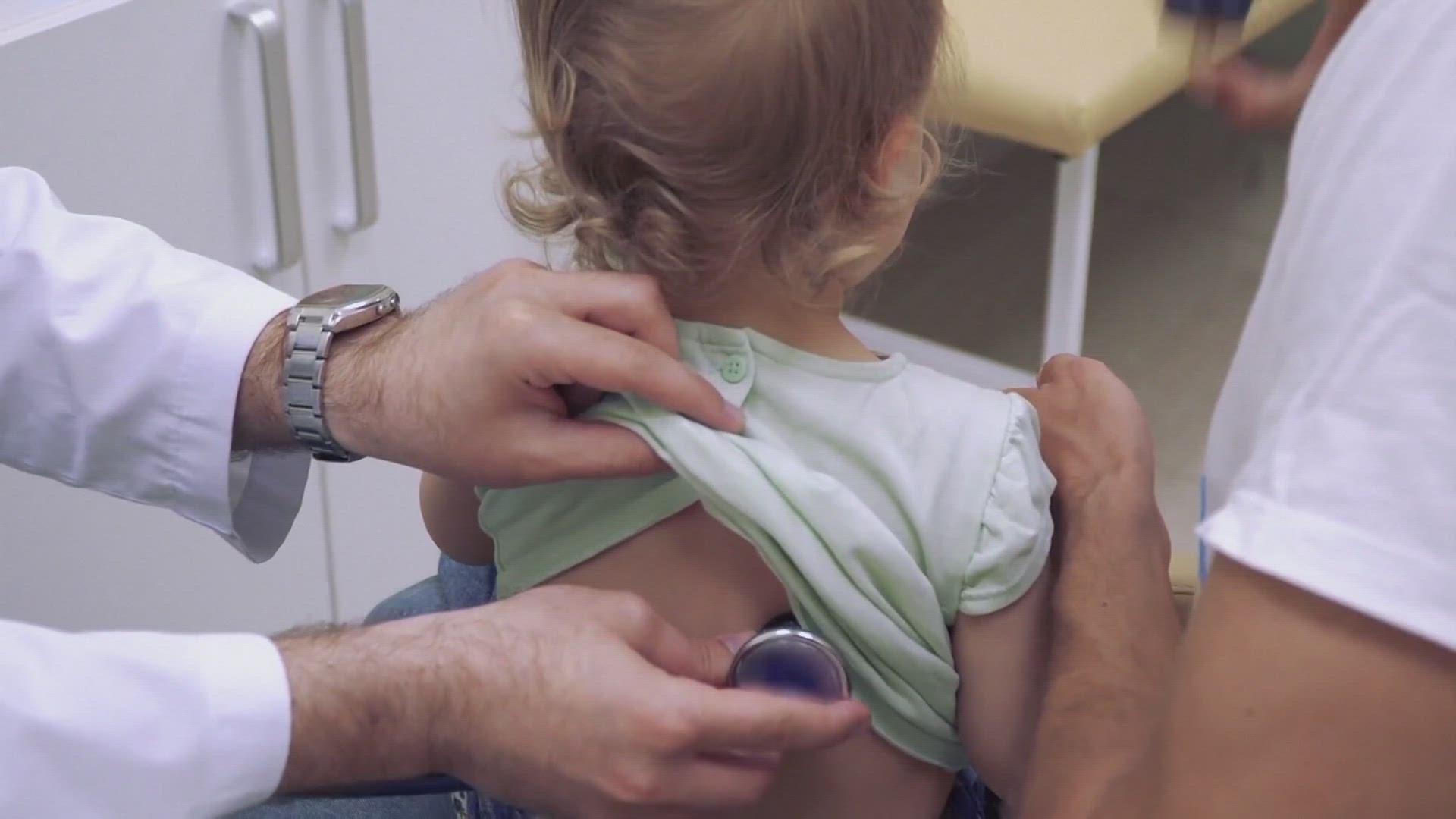YORK, Pa. — Respiratory syncytial virus (RSV) is on the rise this time of year.
Dr. Vinitha Moopen with WellSpan Health has advice for how parents can help keep their children healthy during the holiday season.
Common RSV symptoms include fever, nasal congestion, cough and runny nose.
"What you want to look out for when it worsens would be signs of distress, like rapid breathing, belly breathing, nasal flaring, not being able to suck their bottle," Dr. Moopen said. "Those are all signs in little babies that something is going wrong."
Babies are some of the most vulnerable populations to RSV. The physician says doctors tend to be very concerned about cases in anyone 3 months and under, especially premature babies.
This time of year, the virus can be compounded by rises in COVID-19 and flu cases as well.
The best thing parents can do to keep their children safe is to keep a sharp eye out for symptoms and keep anyone, including family members, from getting too close. Parents should also make sure kids are drinking enough fluids.
"Make sure they're drinking frequently, even if it's not large amounts—just small sips, but regularly," Dr. Moopen said. "And then monitor their urine output to make sure they're maintaining their hydration."
The worst RSV symptoms typically occur between days three to five. The illness takes about a week to clear up.
Dr. Moopen stresses the importance of staying healthy during the season of holiday gatherings.
"Just be really careful who you're getting together with," she advised. "Make sure nobody's sick; make sure you're staying away from large crowds as much as you possibly can—especially with the 3 months and under and the preemie population."
If symptoms persist, it may be time for the child to see a doctor.
"The youngest ones, I wouldn't really wait at all. If there are any signs of distress or decreased urine output or something, bring them right in," Dr. Moopen said. "But the older ones, if you see that it's lasting longer than the three to five days, if you see the fever return, any signs of distress, then we need to see them."
Dr. Moopen says concerned parents can always talk to their doctors, nurses and pediatricians about any worries they may have for their child. If your kid needs to be seen by a doctor, click here to make an appointment with WellSpan.

